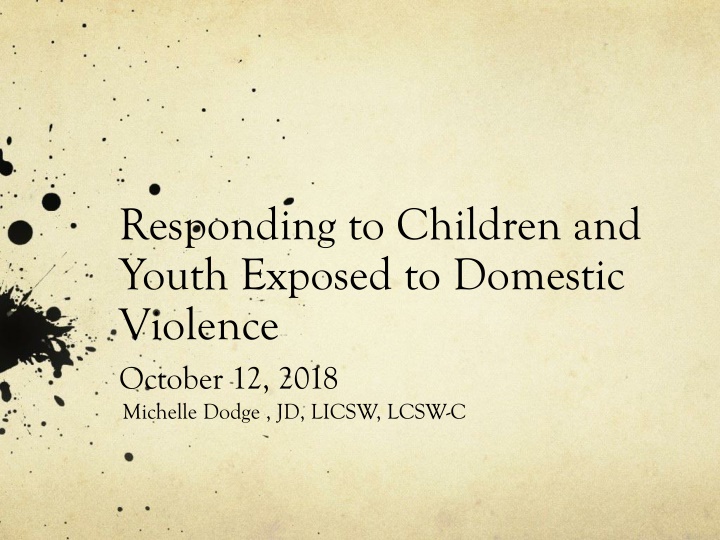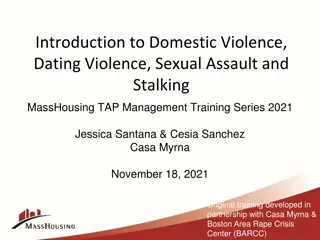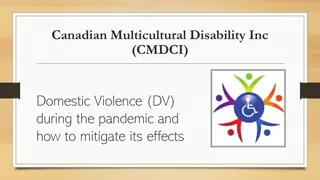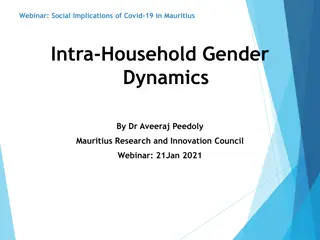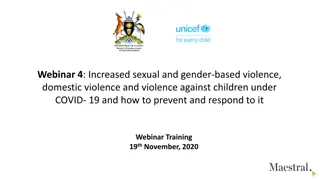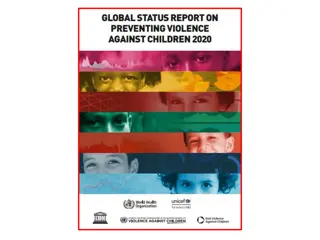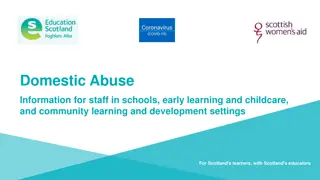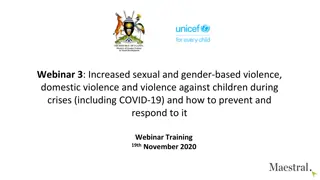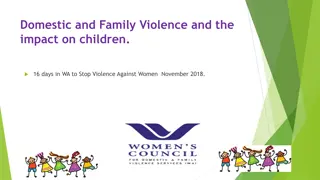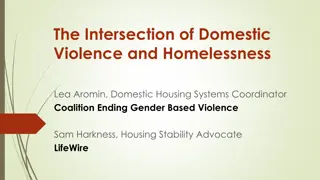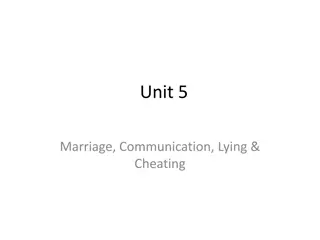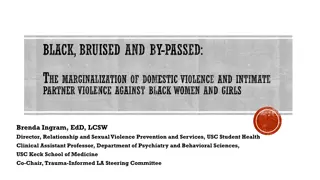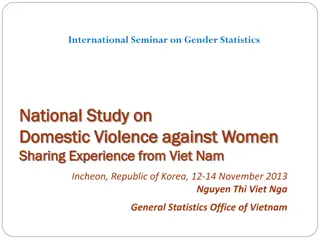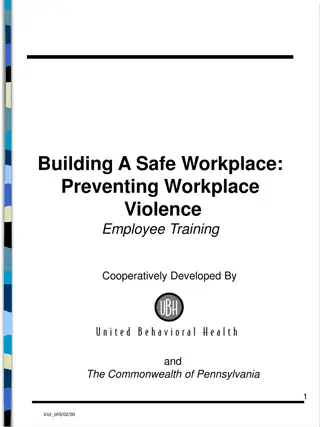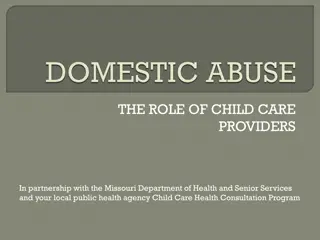Impact of Domestic Violence on Children's Development
Domestic violence exposure can have devastating effects on children's development, leading to cognitive, social, emotional delays, attachment difficulties, internalized disorders, and problematic behaviors. Witnessing such violence can result in negative impacts like social immaturity, cognitive delays, attachment issues, emotional dysregulation, and excessive fear. This exposure may also cause emotional difficulties, PTSD symptoms, and excessive fear in children. Understanding these impacts is crucial in providing effective support to children and youth exposed to domestic violence.
Download Presentation

Please find below an Image/Link to download the presentation.
The content on the website is provided AS IS for your information and personal use only. It may not be sold, licensed, or shared on other websites without obtaining consent from the author.If you encounter any issues during the download, it is possible that the publisher has removed the file from their server.
You are allowed to download the files provided on this website for personal or commercial use, subject to the condition that they are used lawfully. All files are the property of their respective owners.
The content on the website is provided AS IS for your information and personal use only. It may not be sold, licensed, or shared on other websites without obtaining consent from the author.
E N D
Presentation Transcript
Responding to Children and Youth Exposed to Domestic Violence October 12, 2018 Michelle Dodge , JD, LICSW, LCSW-C
Definition Domestic violence is an experience of physical, psychological, and/or sexual abuse that is used to establish power and control over another person o Witnessing domestic violence can be auditory, visual, or inferred, including cases in which the child perceives the aftermath of violence, such as physical injuries to family members or damage to property o
Risks Negative impact on development: Problems with cognitive, social, and emotional delays o Attachment Difficulties: Insecure attachments, poor boundaries and interpersonal skills o Internalized disorders : Anxiety, depression, withdrawl o Externalized Behaviors: Bullying, lying, cheating o Psychosomatic Symptoms: Headaches, physical pain, nightmares o Problematic Behaviors; Aggression, enuresis, disturbed sleep, irritability, tantrums, anxiety o
Developmental Characteristics Physically active, can not sit still for long o Increased ability to control emotions o Self-esteem based on what others tell him or her Understands right and wrong o Wants to please adults, especially parents o Self-esteem reflects opinions of significant others Vivid imaginations; some difficulty separating fantasy from reality
Impact on Development Social Immaturity : Unable to share with others or negotiate with others; overly bossy, competitive, aggressive o Cognitive Delays: Difficulties with concentration and learning o Issues with Attachment: Insecure, superficial attachments; shows little distress or over-reacts when separated from caregiver; clingy or avoidant towards caregiver o Emotional Dysregulation: Poor impulse control; inability to delay gratification; exaggerated response (tantrums, aggression) to mild stressors o
Impact (Continued) Excessively Fearful: Night terrors, anxious, excessive crying or whining, night terrors o Emotional Difficulties: Poor self esteem;, lacks confidence; absence of initiative; self-Blame (child may believe that violence is their fault) o PTSD Symptoms: Reminders of traumatic experience may trigger severe anxiety, aggression, dissociation
Long Term Affects Behavioral Problems Physical aggression, anti-social behavior, learning difficulties in school Violence /acting out behavior, aggression towards parents, siblings, caregivers Impaired parental relationships Inability to develop and maintain appropriate empathic relationships leading to insecure attachments with parents, siblings, and caregivers Food related issues
Interventions Child Parent Psychotherapy: Dyadic intervention for children 0-5; sessions are conducted with child, parent or caregiver. Play Therapy: Form of psychotherapy using play in a therapeutic setting. Theraplay: Family therapy for enhancing and building attachment through joyful engagement. Circle of Security: Relationship based intervention to strengthen security/attachment among child and caregiver Filial Therapy: Form of therapy that teaches parents/care givers how to provide therapeutic interventions to children.
